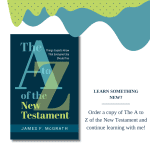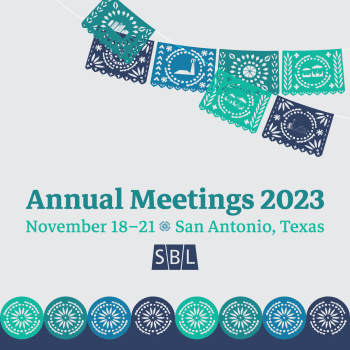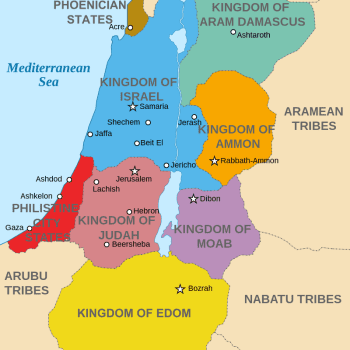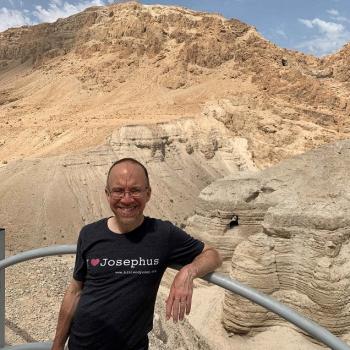Imagine we have a situation in which there is a coordinated attack by multiple mass shooters in a public place. Countless lives are lost, including children. The police show up. They have been able to determine that the shooters left the area where their crimes were committed and are now back in their own neighborhood. The police surround the neighborhood and begin launching grenades into homes. When some commentators begin to object to this, their response (supported by some but by no means all of the friends and relatives of those killed in the mass shooting) is that there is no alternative since otherwise the terrorists might get away with what they did. If they go in house to house that would give them opportunity to get away. This massive response, we are reassured, is the only way to make sure that justice is done. When you begin to object, you are accused of supporting the murder of babies. A police spokesperson further adds that other people in the neighborhood knew what kind of individuals were living there and even had the shooters’ families serving on the residents’ council, so they do not deserve any sympathy.
That story is a parable of how I feel at the moment looking at news about Gaza. I have been an unambiguous longtime supporter of Israel’s right to exist, and to do so within its current borders. I have also been unambiguous in my support of the right of Palestinians to not be walled in, denied citizenship, and in other ways experience oppression in their ancestral homeland from whoever happens to be in control. I would say that whether it was the Ottomans, the British, the modern government of the nation Israel, or anyone else. I do this on the basis of general human rights, but there is also a basis in scripture. Leviticus 19:33-34 reads “When a foreigner resides among you in your land, do not mistreat them. The foreigner residing among you must be treated as your native-born. Love them as yourself, for you were foreigners in Egypt. I am the Lord your God.”
I am appalled by the Hamas terrorist attacks. I am appalled by many other past actions by the same group. I’m also disgusted by some things that Israel has done and is doing. (I’m appalled and disgusted by things the United States has done too, for the record, including but not limited to in the part of the world that we’re discussing.) I don’t think that being horrified by what one group did and then also being horrified by the response makes one less horrified about the former, nor is it inherently inappropriate. I do think that pointing out the past history of the region is crucial context for understanding what various groups do. I don’t think that historical background “justifies” what is being done in any given instance. Payback is not obligatory, much less payback in the form of indiscriminate violence.
I refrained from commenting on this at any length for quite some time since I saw on social media that anyone who showed any support for Israel was accused of supporting oppression and genocide against Palestinians, and anyone who showed support even for innocent Palestinian civilians was accused of siding with terrorists. Not content to sit by and say nothing, I’ve shared a lot of commentary from others. Rarely was anything I shared a direct reflection of my own perspective, but in most instances I at least tried to offer some commentary. I didn’t do so consistently on Twitter since there the character limit makes it impossible to add commentary and nuance at length in a single tweet. And having recently drawn attention to something a fellow Patheos blogger said, which treated the actions of Hamas as though they were justified, it was made clear to me that despite my many past statements that indicate where I stand, and despite it being a known law of Twitter that retweets and shares do not indicate agreement with anything much less everything in what is shared, this was still said to be unacceptable.
So I’ve written a blog post. Since my critics on this occasion were doing so from the Israeli side, I started with an analogy to try to convey why some of us who support Israel do not support devastating neighborhoods and whole cities in an effort to bring terrorists to justice. The ancient principle that was eventually embedded in the Bible, an eye for an eye, placed a limit on retaliation.
Obviously the analogy with which I began is imperfect. Imagine if I tried to elaborate on it further. What if the neighborhood where the shooters lived was fenced in and no one was permitted to leave without authorization? Imagine if those living there lived in poverty while those outside the fence experienced freedom and relative prosperity. Imagine it was one of the districts from the Hunger Games if you like. No analogy will be perfect. The point is that the situation would not justify indiscriminate taking of life by the shooters, but it might be important context. Past acts of terrorism from residents of the neighborhood would likewise be crucial context for the seemingly disproportionate response by the police. All of the history might explain why there were now people on both sides of the fence who seemed to be okay with the loss of innocent lives on the other.
None of that additional detail should need to be added for the point to be clear. Indeed, sometimes the more complex an analogy or parable, the less effectively it tends to communicate the point. I’ve been unambiguous in my support for Jews worldwide and my opposition to antisemitism, and it is not only because of my own Jewish ancestry and relatives. I have been unambiguous in my support of human rights in general including those of Arabic-speaking people living in Israel, many of whom (as it happens) are distantly descended from the Israelites and Canaanites who lived there long ago. I have been unambiguous in denouncing atrocities. But frankly I’ve had enough of people saying that any criticism of what Israel is doing is “siding with the terrorists.” No one is obliged to payback a hundredfold as a response to an atrocity, and no one is obliged to support a response to an atrocity that takes civilian lives across the border as payback. In the interest of fairness I’ll also point out how hypocritical it is that liberals of non-native American ancestry in the U.S. comment on settler colonialism while thinking a land acknowledgment makes their own presence in North America okay. We can’t get everyone back to where their ancestors were, and in this case the majority of those labeled Israelis and Palestinians, the Jews, Christians, and Muslims of the region, are all descended from Canaanite populations that were in the region as far back as we can trace. Even if that were not so, I wish we could all agree that trying to figure out who was in a region first and then give them the exclusive right to inhabit and rule is not only impossible but appalling. Have we really learned nothing from those horrors of the past where people tried to accomplish something along those lines?
Have I adequately offended people on both extremes with what I’ve written here that my post might be worth thinking about?
So which side was I referring to when I titled this blog post “Shooting into the Crowd”? By the end of my little story the answer was “both.” That’s the point I want to end with. If you either find all of what Hamas did to be justified, or all aspects of the response of the Israeli military to be justified, then you are not in fact opposed to the committing of atrocities. You are only opposed to the committing of atrocities against your people group or nation. That isn’t the same thing.
As I said when commenting on the graffiti I saw when visiting Hebron that said “Gas the Arabs,” my own stance is “never again.” For that slogan to not only be meaningful but also accomplish something positive, it has to mean “never again to anyone” and not only “never again to us” – whichever “us” you happen to be a part of.













